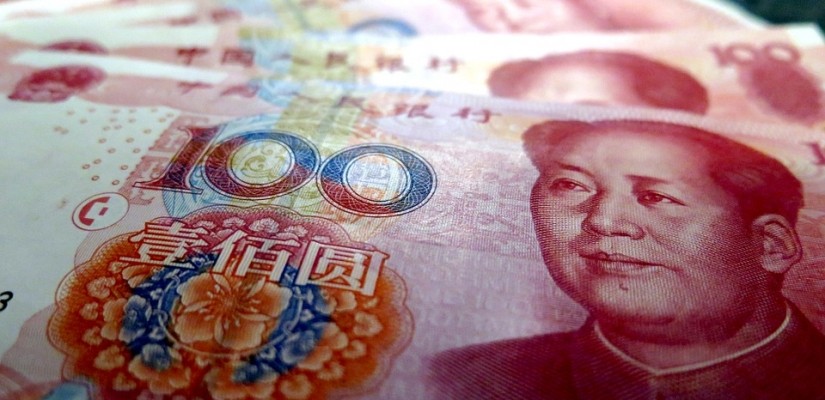German businesses and the state government in Berlin are becoming increasingly aware of China’s overt and covert entry into the German market. China’s overt attempts to enter the German market through company acquisition has been inhibited by a tightening of German and EU regulations on the access of foreign investors to European markets. German businesses and the Federal Ministry of the Interior, however, also accuse China of covert, government-backed cyber espionage to obtain industrial secrets on manufacturing methods, medical research, engineering, and materials science. Chinese hacking groups such as Stone Panda or Comment Crew allegedly acquire industrial information to advance Beijing’s Made-In-China 2025 strategy, which aims to upgrade Chinese technology, products, and services to gain a market edge by 2025. The strategy is based on the idea that China imports knowledge from western countries in order to advance key industries.
Industry espionage allegations and distrust in Chinese foreign investment projects construct a complex undercurrent in Germany-China relations. In contrast to the United States, Germany’s foreign policy is less isolationist towards China, striking a balance between skepticism and international cooperation. This can be observed in Germany’s refusal to completely ban Chinese telecommunications giant Huawei as the US has done. If Germany barred Huawei from accessing the German market, establishing a countrywide 5G network could potentially be more time-consuming and costly. Achieving a total import and export volume of 199.3 billion Euro (USD 221.4 billion) in 2018, China is Germany’s largest trade partner, surpassing Germany’s other major trade partners, the US, the Netherlands, and France. Despite Germany’s trade relations with China, the German government and media are concerned about domestic high-tech companies and global market leaders.
German media reports that malware such as Winnti could potentially penetrate major domestic corporations such as Bayer, Thyssen-Krupp, BASF, Covestro, Henkel, and Siemens. Smaller companies which possess limited access to adequate cyber security tools are particularly vulnerable to elaborate hacking operations. Some of these operations are developed well in advance; planning and execution may require several months or years. Aware of potential cyber-espionage risks, the government in Berlin is seeking to negotiate a formal no-spy agreement with Beijing, attempting to emulate the 2015 no-spy deal between China and the US through which both parties sought to stop cyber espionage of government and corporate data. In 2016, German and Chinese officials agreed to annual bilateral meetings to discuss cyber security issues, yet ever since, follow-up discussions about a no-spy deal appear to have abated.

German IT security experts also recommend an international anti-cyber espionage agreement, which would allow investigative authorities to operate beyond domestic borders. Pushing for a comprehensive European no-spy initiative would strengthen European security. Yet the opinions of European officials on engagement with China are fragmented. While Central Europe tends to view Chinese investment with more caution, China’s investment offers and economic partnerships have particularly appealed to Eastern European states, Greece, and Italy.
Instead of imposing explicit bans, Germany’s approach focuses on tightening regulations to inhibit the entry of Chinese companies into the domestic market. In mid-2018, Germany denied the state-owned State Grid Corporation of China (SGCC) access to the domestic energy market. Later that year, Germany enforced regulations to complicate foreign acquisitions of German companies. Key industries that are vital to national security are additionally safeguarded with an optional limitation on what percentage of a German business can be bought by foreign investors. These regulatory barricades serve to stop foreign companies from obtaining German industrial know-how and using it abroad.
In spite of increased security measures, German railway company Vossloh announced in late August 2019 that its diesel-locomotive business had been acquired by CRRC Zhuzhou Locomotive, a subsidiary of the world’s largest railway manufacturer, the China Railway Rolling Stock Corporation (CRRC). Vossloh was reportedly bought for less than 10 million Euro (USD 11 million). The German railway company had operated under dire financial stress during the last years, accumulating a loss of 2.1 million Euro (USD 2.3 million) in 2018 and a loss of 23 million Euro (USD 25.5 million) in 2017. Vossloh constitutes CRRC’s first acquisition of a company in Europe. German competitor Siemens had viewed CRRC’s entry into the European market and attainment of German locomotive expertise with skepticism. Siemens and Alstom, European market leaders and producers of high-speed trains, were previously denied a merger by the European Commission to prevent unfair market competition in Europe. The two companies had attempted to defend their position in the European market against Chinese competition, which is why they view CRRC’s entry into Germany as a business risk. CRRC’s acquisition deal is set to be sealed within the next few months, suggesting that China will continue to keep an eye on how to access the central European market despite tightened regulations.
